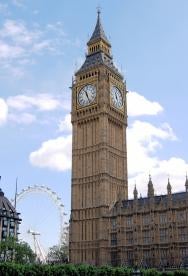Directors of a company are subject to certain duties under the Companies Act 2006. These duties are of obvious importance throughout their service as a director but some of them become particularly important during the period leading up to the insolvency of the company. If a current or former director of a company knew or ought to have concluded at a point before the commencement of administration or insolvent liquidation that there was no reasonable prospect that the company would avoid going into such a process, the director can be liable for wrongful trading under sections 214 and/or 246ZB of the Insolvency Act 1986. If the director is liable for wrongful trading, he/she can be personally liable to make such contribution to the Company’s assets as the Court thinks fit, unless the Court is satisfied that the director took every step with a view to minimising the potential loss to the Company’s creditors.
The components and possible defence to a wrongful trading claim were recently considered and clarified in the case of Ralls Builders Limited (in liquidation) [2016] EWHC 243 (Ch). Click on the link above for our full analysis of the case.
Mr Justice Snowden refused to make a declaration under section 214(1) IA 1986, finding the Directors were not liable for wrongful trading. In giving his judgment, he clarified the following points:
-
Quantum of claims – how the ‘increase in the net deficiency’ should be calculated
-
Considerations for directors trading in the twilight period whilst awaiting investment
-
The importance of advice from insolvency professionals
This case provides very helpful clarification to insolvency practitioners, directors of companies and their advisers. Even though a company may seem as though it is doomed to failure on a balance sheet or cash-flow basis, if the directors seek advice from professionals and act reasonably in a way that is designed to be in the best interests of the company’s creditors, it may absolve them from liability for wrongful trading. If not, then in order to obtain the benefit of any limitation to that contribution, they will have to overcome a high threshold by showing that they took “every step” to minimise loss to the company’s creditors, including new creditors.




 i
i

